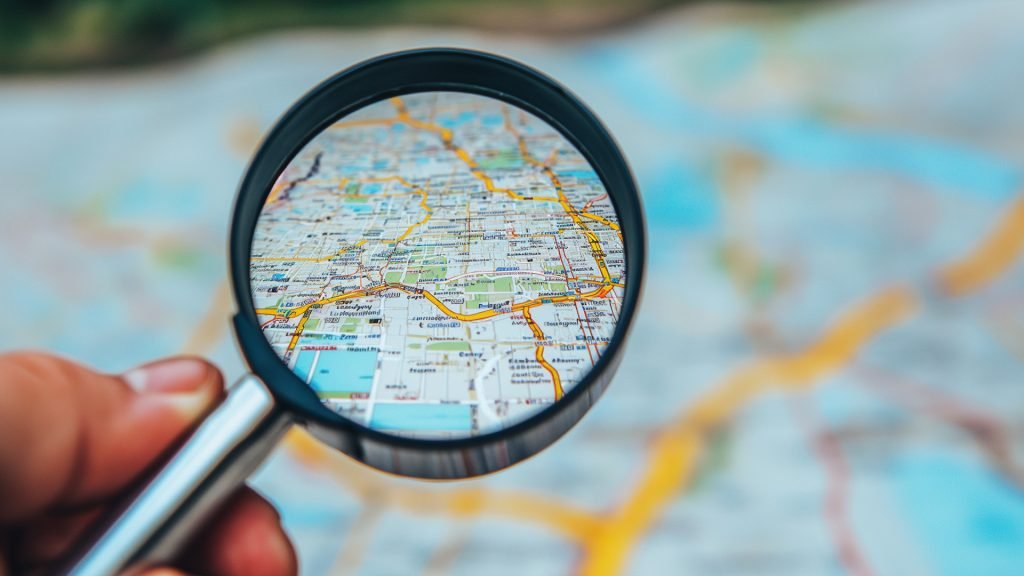Local SEO Strategies to Compete with the Big Brands
We know how frustrating it can be to feel like your modest marketing budget is no match for the high-rolling SEO of larger competitors. Maybe it’s time to think inside the box and Go Local! Try focussing your efforts and stay local with some smart localisation and optimisation. Small businesses can absolutely compete on the search engine playground.

The key is zeroing in on the keywords, platforms, and marketing tactics that matter most for driving local traffic and sales. Don’t try to win by throwing time and money trying to rank nationally. Instead, why not focus your efforts on dominating the first page of local search results.
The 10 Keywords That Unlock Local SEO
To kick off your geo-targeted SEO game plan, start by identifying keywords tailored to your geographic area and target audience. Here are 10 types of keywords you should focus on:
- Area-Specific Keywords – Include your city, county, or area, like “Oxford Boutiques” or “Garden Centre Cornwall”.
- Neighbourhood Keywords – Target even more hyperlocal keywords like “cafes in Notting Hill” or “second-hand designer clothes in Chelsea”.
- Geo-Targeted Long Tail Keywords – optimise pages for longer, localised phrases like “used bookstores in Liverpool Waterfront” or “Kids play areas near Pheonix Park, Dublin”.
- Local Events Keywords – Tap into searches for local happenings like “street fairs in Houston”, “Music festivals Virginia”, or “farmers markets Knysna”.
- Industry Keywords – Incorporate relevant terms like “pop-up shops”, “food truck events”, or “beauty industry networking events”.
- Local Product Keywords – Go granular with phrases featuring your specific offerings and location, like “surfboard rentals Newquay” or “Home catering for parties in Berlin”.
- “Best of” Keywords – Rank for searches like “best pizza in Siena” or “top winefarms to visit near Cape Town”.
- Experience Keywords – Cater to search intent for activities like “cooking classes Glasgow”, “pottery workshops Wexford”, or “yoga studios Kommetjie”.
- Local Brand Name Keywords – Target your own business name and location like “Jo’s Donuts Ohio” or “Sarahs Pet Grooming Bournemouth”.
- Competitor Keywords – Keep an eye on what phrases competitors rank for locally and look for opportunities to out-optimise them.
Sprinkle these locally-flavored keywords across your site content, titles, image names, alt text, schema markup, and ads. Now, let’s explore some killer strategies for actually ranking for these terms…
Optimise Your Local Listings
90% of consumers use search engines to find local businesses, so your online directory profiles are prime real estate. Start by beefing up and managing your listings on platforms like:
- Google My Business
- Yelp
- Craigs Lists
- Facebook Business Page
- Bing Places
- Yellow Pages
- Local industry directories and business associations
Take the time to ensure the listings are completely filled out and consistent across platforms. It’s vital to check your business name, address, phone number, hours, descriptions, offerings, photos, videos, menus/price lists, and any other details are the same for each business listing.
Include plenty of enticing photos and videos showing your products, services, storefront, signage, employees, and customer experiences. Ask satisfied customers to leave positive reviews and promptly respond to any negative feedback.
Our Top Tip: Claim and optimise your brand name, like “Jemmas BakeryCardiff”, across all major directory listings. This makes it easier to rank for searches, including your local business name.
(Not sure how? Read this article How to Set up Your Google Business and Bing Places Profiles)
Leverage Local Events
Hosting pop-ups, trunk shows, classes, workshops, contests, parties, and other in-person events is a stellar way to drive community engagement and raise local brand awareness. Promote any events through hyperlocal channels:
- Post on neighborhood Facebook Groups, NextDoor, and LinkedIn Groups
- Take out ads in local newspapers, magazines, and city guides
- Hang posters and signs, and distribute flyers around your local area
- Send emails to your customer mailing list
Play the Social Media Game
For extra exposure, create dedicated event pages and Facebook ads optimised with relevant local keywords like “art festivals in George”, “street fairs in Plymouth”, “local holiday markets”, or “free summer yoga classes in Kommetjie”. Aim for more geo-targeted buzz, as this means more organic traffic.
With billions of active users, platforms like Facebook, Instagram, YouTube, Pinterest, TikTok and LinkedIn are prime venues for reaching local audiences. Each channel has its own unique algorithm designed to connect users with relevant content and accounts.
Your job is to finesse these algorithms by localising your social media presence. Emphasise location relevance in your posts, videos, Pins, Stories, Reels and other content. Highlight your city, neighbourhood, notable landmarks, and partnerships with other local businesses. Respond to any comments and DMs that mention your location.
Our Pro Tip: Identify influencers, brands, and neighbourhood personalities located in your area to potentially partner with on store events, product showcases, co-branded content, and local recommendations. Engaging and working in tandem with well-established local influencers is going to amplify your following and engagement.
Think Hyperlocal, Act Locally
Huge global brands focus their marketing on massive national and international audiences. As a small business, you have an advantage – the ability to deeply engage and build loyalty with locals.
With strategic optimisation around geographic keywords, events, and social signals, you can dominate the coveted first page of local pack and map results for searches in your backyard.
Don’t worry about chasing clout across vast regions or competing at a global level. The riches are in the niches, and your niche is your own zip code. Focus your SEO and social efforts on delighting neighbourhood patrons, and your local authority and revenues will flourish.
The key is honing your online visibility and relationships around the unique interests, conversational keywords, and buying behaviours of customers in your immediate area. With the right mix of localised SEO and social content, your businesses will absolutely thrive in your local area and digitally.
Takeaways to Consider
Pain Points:
- Feeling like your small budget can’t compete with big brands’ SEO
- Wasting time/money on national SEO efforts
- Not optimising local business listings
- Missing out on local events and partnerships
- Neglecting social media optimization
Our Solutions:
- Laser focus your budget on optimizing for local searches.
- Research hyperlocal long-tail keywords.
- Completely fill out and claim directories (Citations, NAP) like Google My Business, Yelp and other business directories
- Host local pop-ups and partner with neighbourhood influencers. Geotag content and engage local followers.
How would you…?
- Identify your top 10 local SEO keywords to target?
- Make the most of optimizing your local business listings?
- Plan hyperlocal events to boost local engagement?
- Partner with influencers and brands in your neighborhood.
- Make your social media content more locally relevant?
How This Helps You:
Targeting local SEO allows small businesses to drive more traffic from nearby customers searching for their products and services. By actively engaging locally, small businesses will gain an edge over big brands. Optimising for geographic keywords and engaging with neighbourhood customers will drive more local traffic and sales, and It won’t take long to dominate the search results and build loyalty right in your own backyard.




